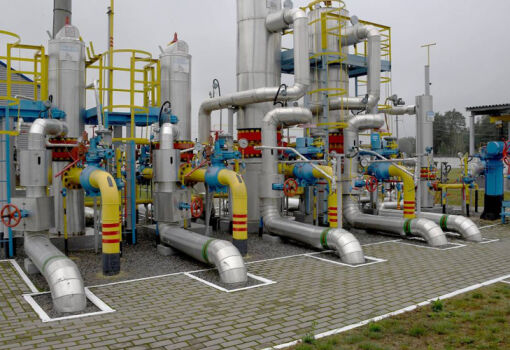
The State Register of Voters (RSA) is a system that includes data on all Moldovan citizens with the right to vote. Based on the RSA, the Central Election Commission (CEC) generates voter lists: they cover all citizens who live within the radius of a polling station and are assigned to a single polling station – at the place of residence or registration.
The RSA is linked to the State Population Register (RSP), which is a single integrated system of automated registration of Moldovan citizens, foreign citizens and stateless persons permanently or temporarily residing on Moldovan territory, as well as Moldovan citizens permanently or temporarily residing abroad.
RSA lists 3,298,400 voters (as of August 1 this year). In RSP, according to the latest data, there are 4,013,300 registered voters.
There are also census data: 2,409,200 people, not including the left bank of the Nistru River. But they are about nothing at all. More on this below.
And finally, the number of ballots printed by the CEC this year: 3,660,05 thousand pieces (including 23,500 for citizens living in settlements on the left bank of the Nistru River and 864,300 for foreign polling stations).
When asked by Logos Press, CEC Secretary Pavel Postica said that all citizens with the right to vote – that is, almost 3.3 million people on the main electoral lists and, if necessary, on additional lists – are expected to come to the ballot boxes. The latter include citizens not assigned to any polling station, i.e. without registration at the place of residence or temporary residence. These citizens can vote in parliamentary elections in any polling station.
The difference between the data raises questions about how the discrepancies affect the accuracy of the formation of voter lists, the sufficiency of the number of ballots for all eligible citizens or, conversely, the unreasonably excessive number of ballots abroad and, ultimately, the election results.
Iurie Ciocan, former CEC chairperson, believes that census data cannot be considered an accurate and reliable basis for determining the number of voters. It is only an alternative source for estimating the population and planning the socio-economic development of the state. Moreover, recalling the 2014 census, he says that back then in Chisinau, for example, about 40% of households were not counted by the census at all.
Iurie Ciocan, former CEC chairman: “We don’t know how many people will come to the polling stations. Even on the Saturday before the elections we will not know exactly how many people will come to vote. But the task of the CEC is to ensure that all citizens with the right to vote can participate in the voting. That the difference between the RSA data and the census data can somehow affect the electoral threshold is speculation, and such speculation will always arise! Even if only half of them show up to vote, the state still has to provide ballots for everyone!”
So, the most important thing is that the number of those who voted and the figures in the protocols coincide. Opposition parties and blocs have already announced that they will closely monitor all incoming and outgoing voters, including at foreign polling stations, and their compliance with the number of ballots in the protocols. The task is not an easy one.
In this election, compared to the early parliamentary elections of 2021, the number of overseas ballots has almost doubled. There is an opinion that this is done with one simple goal: to attract as many citizens as possible to the ballot boxes and, consequently, to increase the chances of the ruling party to gain a majority in the parliament. After all, traditionally PAS has traditionally gained the most votes there – at least half of all those who voted.
The direct proportionality is simple and cynical: the more voters come to the polling stations abroad, the higher the number of votes for PAS. And vice versa – for other parties and blocs it creates an additional difficulty: at the threshold of 5%, parties must collect 50 thousand votes if 1 million people vote, and if 2 million people vote – 100 thousand. For blocs the figures are even stricter – 70 thousand and 140 thousand votes respectively. And so on. In other words, each additional vote for PAS abroad is, to put it bluntly, a disadvantage for the competitors. Unpleasant math for the opposition and very comfortable for the authorities.
Political scientist Sergei Banar does not rule out this possibility, because “any power has invariably resorted to the use of administrative resources”.
Sergei Banar, political scientist: “Overestimating the number of voters creates a certain maneuvering field, including during the vote count. The more people who voted, the more confident and comfortable those who control the process feel. However, there are other methods of elimination – exclusion of parties, intimidation and other methods of pressure”.
The closer the election date gets, the tougher and more sophisticated the methods become. Only in the last few years we have seen summonses to the police, blocking of bank accounts, ban on entry to Lithuania (it is hard to imagine that this was done without the knowledge of Moldovan official structures) for Irina Vlah – one of the leaders of the Patriotic Bloc, searches with seizure of equipment in media offices, accusations of money laundering. And, according to experts, this is just a “rehearsal” before the main actions.
According to Serhiy Banar, the current political process in the country is a pure profanation. And he speaks not only about the authorities. “I am sure that after the elections there will be those in the ranks of parties and blocs who will suddenly feel a break with their own leadership and will agree to agreements with PAS. At the same time, the seats in the parliament, in fact, have already been approximately distributed,” the expert notes.
Banar says that in more than a decade he has never seen a more primitive election campaign. The methods used are the same as in the 90s, despite the fact that we live in the XXI century, when “artificial intelligence manages the largest corporations”. Therefore, the political scientist, who has seen many campaigns and once ran for deputy as an independent candidate, sees no sense in this mouse fight. And the key factor limiting internal political changes remains the unresolved Ukrainian issue: “Until the Ukrainian issue is resolved and an agreement is reached between NATO and the Russian Federation (with NATO, not with Ukraine directly), our country will remain a hostage of external forces – we are too important a link to be allowed to change anything in the political structure of the country. In the conditions of a colony, elections are just a tool to legitimize decisions taken abroad in advance,” Serhiy Banar concluded.
Against this background, the political scientist drew attention to the deep crisis in the country’s governance: “The level of incompetence and cynicism towards our own people has reached unprecedented heights. No one, for example, has a clear vision and strategy for the reintegration of the country. No nation can build its future while it has a bleeding wound. We are not even able to offer any solution, however simple.
The fact that the CEC significantly reduced the number of ballots for Moldovan citizens living in settlements on the left bank of the Dniester (from 90,000 in the 2024 presidential elections to 23,500 in this year’s parliamentary elections) is, to put it mildly, not conducive to building bridges.
The Union of Lawyers of the Republic of Moldova, as well as the Promo-LEX organization as observers, criticized the CEC for reducing the number of polling stations for voters living in settlements on the left bank of Nistru. In particular, they criticized the criteria used by the CEC, which allegedly reduced the number of voters in the previous elections. So, they don’t need more ballots.
Maxim Lebedinsky, Chairman of the Union of Lawyers, former Secretary of the CEC: “Of course, the reduction in the number of polling stations does not affect the choice of voters. However, this fact may lead to the formation of queues and complicate access to polling stations, as the distances that citizens from localities outside the constitutional control of the Moldovan authorities have to travel increase. The 278,000 residents from the left bank of the Nistru River are not attached to a specific polling station, as is the case at their place of residence. They have to travel distances from 10 to 100 km to exercise their right to vote. Although this does not affect the choice itself, but it affects the accessibility of the realization of the right to vote”.
Experts in electoral law point out that the number of voters in the diaspora would never have reached such a level if at a certain point – in 2010 – it had not been decided to go beyond embassies and consulates and expand the number of polling stations. It is natural that with this expansion the number of participants increases: the polling station becomes closer and the costs – both financial and time – are significantly lower.
The same applies to citizens residing in Transnistria. And today’s restriction turns not only into a form of passive disenfranchisement, but also demotivation. And this is not just a technical problem – it is a question of the quality of democracy. And something suggests that the arsenal of such methods has not been exhausted yet. For example, a “sudden” repair of a bridge may well follow – just to be sure. And in the case of the reduction of sections in Russia, passivity is also a consequence, not a cause. And it turns out that the authorities only encourage this passivity.
Ultimately, the higher the turnout “where necessary” and, therefore, the higher the overall turnout, the more difficult it is for the opposition to overcome the barriers, the “cleaner” the victory of the ruling party will look. And the easier it is to present it as the will of the people.
The opposition can benefit from a high turnout only in one case: if it manages to reach out to its disappointed and intimidated voters. Every person who came to the polling station and did not vote for the authorities is a chance to change the balance. If, of course, something will depend on him in such “electoral” arithmetic.



